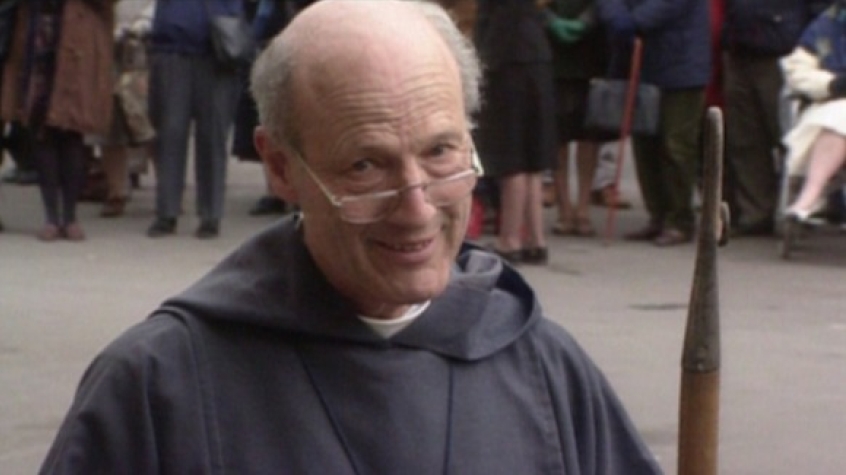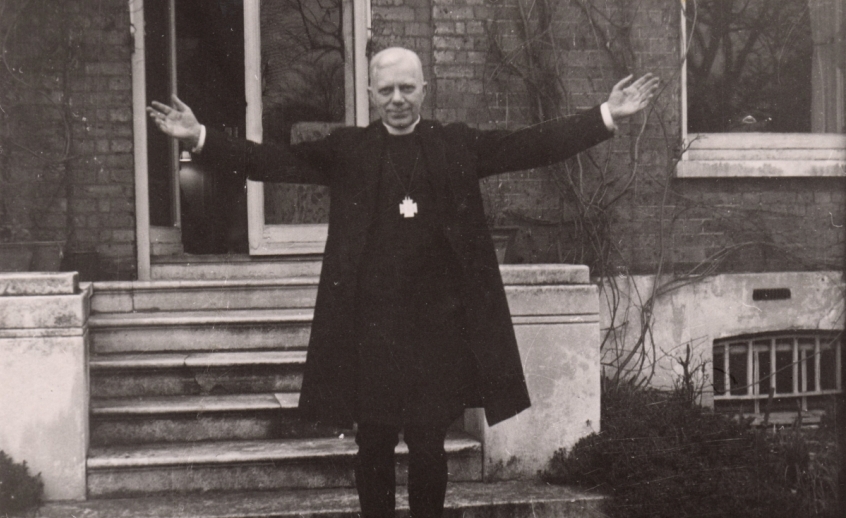George Bell was 'fond' of paeodophile bishop Peter Ball and sponsored him for ordination, an inquiry has heard.
As former bishop of Chichester, Bell is considered one of Anglicanism's heroes. However, it emerged in 2015 the Church of England paid £16,800 to the woman, known as Carol, in a legal settlement after she accused Bell of sexually abusing her as a child.
Now it can be revealed Peter Ball, who was jailed for a string of sex offences against teenagers and young men in 2015, was close friends with Bell.

Ball was initially rejected in his attempt to become a priest in 1951 but Bell wrote to the selection panel in support of Ball's application.
When Ball applied for ordination a second time it was Bell who sponsored him through the process.
In his witness statement to an inquiry investigating child sex abuse within the Church of England, Ball denied that Bell had 'overruled' the selection board allowing him to be ordained.
However he said that after his ordination Bell would visit his parish to take services, adding he was 'aware that he was "fond" of me'.
In response to a question about Bell's involvement in his ordination, Ball told the inquiry: 'It is not right therefore to say that Bishop Bell "overruled" the selection board in order for me to be ordained.

'Although Bishop Bell had indicated in 1951 in a letter to the first Selection Board who did not recommend me for ministry that he would be "prepared to accept me for ordination" even though the Selection Board had not recommend me for training at that time, that is not how matters proceeded.'
He went on: 'After theological college, it was Bishop Bell ultimately who did sponsored [sic] me for ordination, but with the approval of the Selection Board. Bishop Bell then placed me in the parish of Rottingdean where I undertook my first curacy.
'He would visit my curacy on occasion to carry out confirmations and to take services.
'We had a good working relationship; I was aware that he was "fond" of me. He was someone who I looked up to when I was a young curate starting out in the Church.'
Bell, who died in 1958, was revered by Anglicans before the abuse allegations against him emerged. However a report earlier this year heavily criticised the Church's handling of the accusations and found it 'rushed to judgement' and failed to give proper consideration to Bell's rights.
But the archbishop of Canterbury refused to back down and said a 'significant cloud is left over his name'.
Ball went on to become bishop of Lewes in the diocese of Chichester and then bishop of Gloucester. He was accused of gross indecency against a 16-year-old in 1992 but escaped with a police caution after he received backing from a member of the Royal Family and a number of other establishment figures. He was told to step down from his role as a bishop. However he continued to minister in churches and schools until 2010 before he was eventually arrested.
At the age of 83 he was sentenced to 32 months for misconduct in public office and 15 months for indecent assaults in 2015. He was released after serving 16 months.
The independent inquiry into child sexual abuse has been investigation how the diocese of Chichester handled allegations of child sexual abuse as a case study for the wider Church of England.
In his concluding remarks today solicitor David Greenwood said the CofE was more 'malign' than the Catholic Church in its response to abuse and accused it of 'a conscious effort to treat survivors badly'.
The archbishop of Canterbury in his evidence said he had 'learnt to be ashamed again of the Church' and warned child sexual abuse would 'destroy the Church' if not addressed.
You can read more about the past three weeks of hearings here.













